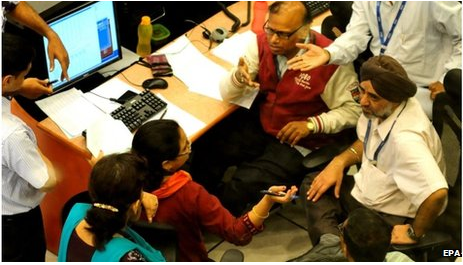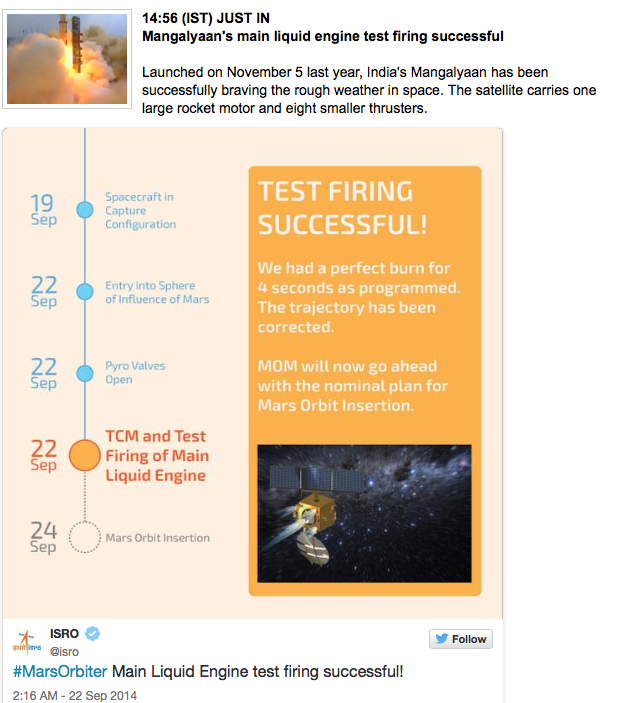
The probe is being tracked by scientists and engineers in Bangalore
[SatNews] ...spacecraft is equipped with five instruments including a sensor to track methane or marsh gas—a possible sign of life...
India's maiden mission to Mars has "entered the Martian neighborhood," its space agency says, 48 hours before its planned arrival in orbit. Launched last November, the spacecraft, known informally as Mangalyaan, will complete a 300-day journey to reach the orbit on Wednesday. If it succeeds, India will become the fourth country in the world to claim a successful Mars mission.
U.S., Russia and the European space agency already have probes there.
"Our navigator's calculations shows that the Mars Orbiter Mission (MOM) has entered the gravitational sphere of the influence of Mars," the Indian Space Research Organization (ISRO) tweeted on Monday.
Science journalist Pallava Bagla told the BBC the gravity of Mars had now, "started acting on the orbiter and it would gather more speed," ahead of its planned entry into the orbit of the Red Planet.
Regional space race—Later on Monday, India's space scientists successfully started the spacecraft's idling main engine for four seconds to test their efficiency.

The engine will be fired to slow down the spacecraft, enabling it to be captured by the planet's gravity and place it into Martian orbit.
The 1,350kg (2,976lb) spacecraft is equipped with five instruments including a sensor to track methane or marsh gas—a possible sign of life, a color camera and a thermal imaging spectrometer to map the surface and mineral wealth of the planet. The mission will also analyze the thin Martian atmosphere.
Separately, the U.S. space agency NASA's latest Mars satellite arrived successfully in the Mars orbit on Monday after its 10-month journey.
India's Mars Mission is being seen as the latest salvo in a burgeoning space race between the Asian powers of India, China, Japan, South Korea and others.
At $72m (£43m), India's Mars mission is comparatively cheap, but some commentators have still questioned whether a country with one of the highest rankings for childhood malnutrition in the world should be spending millions on a mission to the Red Planet.

